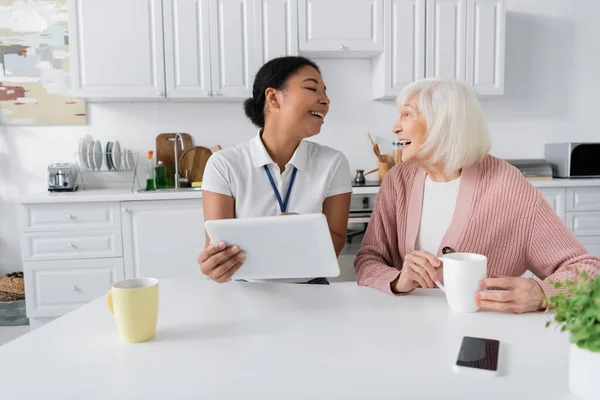
What Does a Home Carer Actually Do?
Understanding the role of a carer and how they support your loved one at home
Introduction: Clarity Before Commitment
If you're starting to explore home care options for a loved one, you're likely overwhelmed — not just emotionally, but with questions. One of the biggest? “What does a carer actually do?”
It’s easy to picture the basics — helping with meals or popping in for a chat. But a professional home carer does much more than that. Understanding their role can help you make the right decision, at the right time, for someone you care deeply about.
Let’s break down exactly what a home carer does, how their support is tailored, and what it can mean for your family.
1. Personal Care with Dignity
A carer provides gentle assistance with daily tasks such as:
Washing and bathing
Getting dressed and undressed
Oral hygiene and grooming
Toilet assistance
Managing continence
But here’s what’s often overlooked: how they do it matters just as much as what they do. The best carers work at your loved one’s pace, respect their privacy, and always prioritise dignity — whether they’re helping with a shower or brushing hair.
2. Medication and Health Support
Medication can be confusing or even dangerous when taken incorrectly — especially if memory issues or complex prescriptions are involved.
Home carers can:
Prompt or assist with taking prescribed medication
Record doses and times taken
Monitor changes in behaviour or condition
Communicate with nurses or GPs if needed
This level of support can reduce hospital visits and catch problems early — a huge relief for families who can’t be there all the time.
3. Domestic Tasks and Daily Living Help
Maintaining a clean, safe home gets harder with age or disability. Carers help keep things running smoothly by:
Cleaning and light housework
Changing bedding
Shopping for groceries or essentials
Preparing meals and drinks
Helping with laundry and dishes
It’s not just about tidiness — it’s about comfort, safety, and preserving a sense of control over one’s space.
4. Companionship and Social Connection
Loneliness is one of the biggest hidden health risks facing older adults in the UK.
Carers can provide:
Meaningful conversation
Games, puzzles, or reminiscence therapy
Support on walks or in the garden
Escorting to appointments or community events
It’s about human connection, not just ticking tasks off a list. For many clients, their carer becomes a trusted companion — and sometimes a lifeline.
5. Supporting Independence, Not Replacing It
One of the biggest myths about home care is that it makes people feel dependent or “looked after.” In reality, great home care does the opposite — it enables people to live the life they want, with support that fits around them.
The right carer will:
Encourage independence where possible
Adapt their support daily as needs change
Respect routines, preferences, and personal values
Be present without being intrusive
Whether it’s one visit a day or 24/7 live-in care, the role is always the same: to empower.
Case Example: John & His Carer in Kent
John, a retired postman in his late 70s, struggled after a fall left him less mobile. His daughter arranged home care in South East London. Now, a carer visits each morning to help him shower, prepare breakfast, and take medication.
But just as importantly, they stay for a cup of tea and chat about football — something John looks forward to daily. With just a bit of help, he remains independent in the home he loves.
Ready to Learn More? Let’s Talk
If you're wondering whether a carer could help your parent or loved one, we’re here to guide you — without pressure. We offer free home consultations across Bexleyheath and surrounding areas, where we’ll meet in person, learn about your family’s needs, and explain exactly how we can help.
